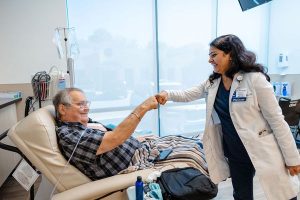Things About myopia treatment lens Your Doctor Wants You to Know

The myopia treatment lens is a unique spectacles lens that can help the wearer gradually improve their myopia level and achieve highly effective myopia control. The lens contains concentric rings that induce peripheral defocusing and near vision blur, which is thought to suppress myopic eye elongation and axial length growth rate.
Myopia is a common vision problem for teens
Myopia is a common vision problem for teens. It’s also called near-sightedness or short-sightedness.
For example, if you’re myopic and look at your computer screen, then look out the window, you’ll probably see better through the window than through your computer screen. If you’re farsighted, it will be the opposite you’ll see better through your computer screen than through the window.
Your eye doctor will measure how much you’re near sighted or farsighted with a vision test called an eye exam. He or she might also give you a prescription for glasses or contacts to correct your vision.If you’re myopic and need glasses for distance, there are several ways to help prevent the worsening of your myopia:
Don’t sleep in your contacts. Sleeping in your contacts can make them more rigid and cause vision problems over time, including increased sensitivity to light (photophobia) and dry eyes that may make it difficult to wear contacts comfortably during waking hours.
Wear protective eyewear when playing sports or doing other activities that could result in injury to the eye (such as biking). Contact lenses may be damaged by impact from the ball or any sports equipment.

Treatment For Myopia
The most common treatment for myopia treatment lens is wearing glasses or contact lenses, which correct the refractive error (near-sightedness) that causes vision problems. But if you have progressive myopia and your eyes continue to get worse over time, you may need stronger prescription eyeglasses or contact lenses as time goes on.
As a last resort, you may consider refractive surgery such as LASIK or PRK to reduce your dependence on glasses or contacts. Refractive surgery offers the benefits of improved vision without having to wear eyeglasses or contacts every day. However, there are risks associated with all types of refractive surgery: possible side effects such as dry eyes and infection, halos around lights at night and glare from bright lights during the day, and night vision problems after driving at night for a couple of weeks after surgery.





